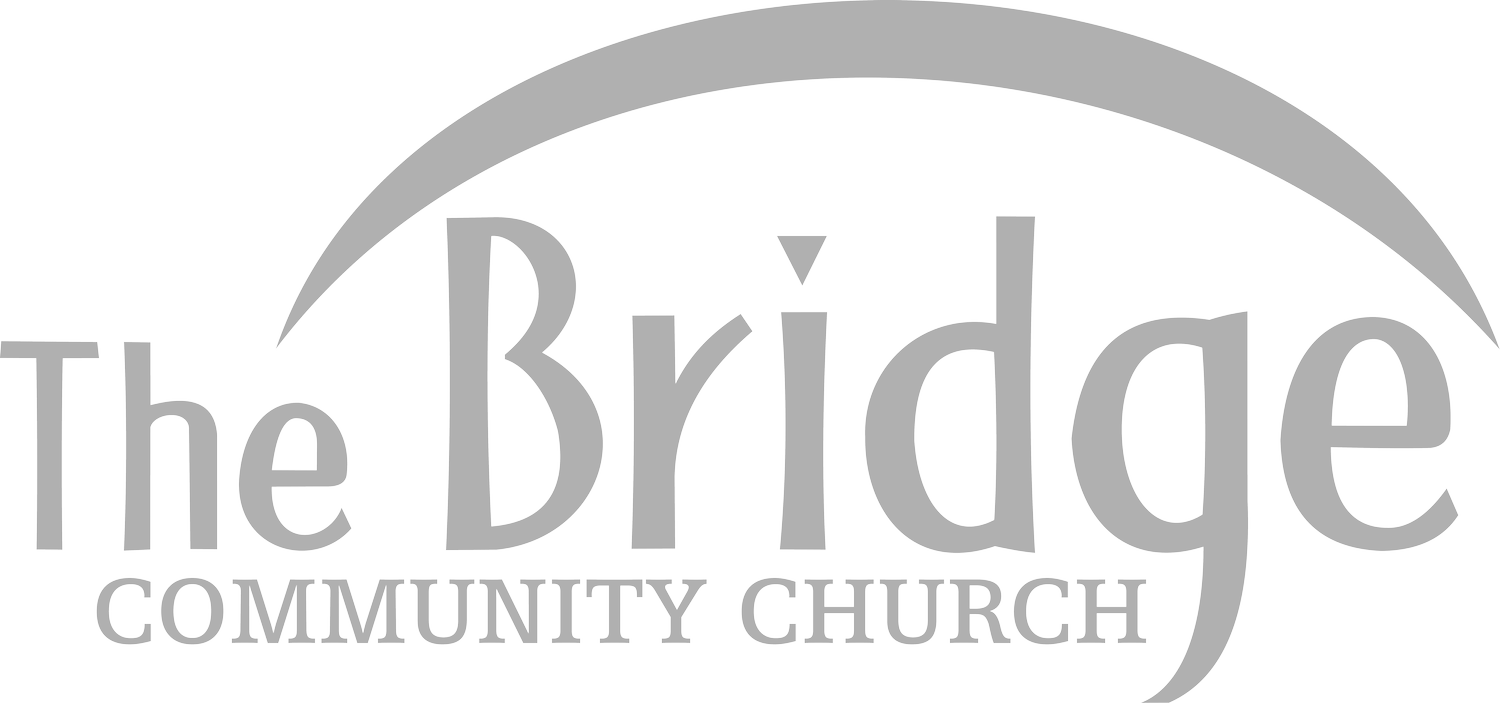
RESOURCES
VIDEOS
How to Craft Your Testimony
How to Present the Gospel
HOW TO STUDY THE BIBLE
Navigate between these two extremes—to discuss both a “process” for how to study and read Scripture but also address some of the important philosophical elements related to communication and meaning.
SPIRITUAL GIFTS SURVEY
An evaluation designed to help you identify and Develop your God-given spiritual gifts.
HOW DID WE GET OUR BIBLE?
God, through His marvelous grace, and abundant providence, has preserved and transmitted His divinely inspired Word so that we can learn about Him and how to enter into a relationship with Him and His Son Jesus.
RECOMMENDED READING
-
Bible Study Methods - Rick Warren
The Imitation of Christ - Thomas A. Kempis
What’s So Amazing About Grace? - Philip Yancey
Women of the Word - Jen Wilkin
-
A Man Called Peter - Catherine Marshall
Bonhoeffer: Pastor, Martyr, Prophet, Spy - Eric Metaxas
Born Again - Charles W. Colson
An Arrow Pointing to Heaven - Rich Mullins
The Hiding Place - Corrie Ten Boom
The Magnolia Story - Chip and Joanna Gaines
The Secret Thoughts of an Unlikely Convert - Rosaria Champagne Butterfield
Through States of Splendor - Elisabeth Elliot
Tramp for the Lord - Corrie Ten Boom
-
The Jesus Storybook Bible - Sally Lloyd-Jones
-
The Pilgrim’s Progress - John Bunyan
-
Darwin on Trial - Phillip E. Johnson
Knowing God - J.I. Packer
Mere Christianity - C.S. Lewis
Orthodoxy - G.K. Chesterton
The Case for Christ - Lee Strobel
The God Who Is There - Francis A. Schaeffer
The Problem of Pain - C.S. Lewis
The Screwtape Letters - C.S. Lewis
The Weight of Glory - C.S. Lewis
-
A Book of Common Prayer - Joan Didion
The Chronicles of Narnia - C.S. Lewis
In His Steps - Charles M. Sheldon
The Great Divorce - C.S. Lewis
The Hobbit - J.R.R. Tolkien
The Lord of the Rings - J.R.R. Tolkien
This Present Darkness - Frank E. Peretti
-
Absolute Surrender - Andrew Murray
Basic Christianity - John Stott
Boundaries - Dr. Henry Cloud & Dr. John Townsend
Celebration of Discipline - Richard J. Foster
Counterfeit Gods - Timothy Keller
Crazy Love - Francis Chan
The New Dare to Discipline - Dr. James Dobson
Desiring God - John Piper
Don’t Wast Your Life - John Piper
Essential Truths of the Christian Faith - R.C. Sproul
Forgotten God - Francis Chan
Holiness - J.C. Ryle
How Should We Then Live? - Francis A. Schaeffer
Humility - Andrew Murray
Jesus Calling - Sara Young
Lost in the Middle - Paul David Tripp
Love & Respect - Dr. Emerson Eggerichs
Making Sense of God - Timothy Keller
More Than a Carpenter - Josh McDowell & Sean McDowell
Parenting - Paul David Tripp
Shaken - Tim Tebow
The Broken Way - Ann Voskamp
The Devine Conspiracy - Dallas Willard
The 5 Love Languages - Gary Chapman
The Life We Never Expected - Andrew & Rachel Wilson
The Purpose Driven Life - Rick Warren
The Pursuit of God - A.W. Tozer
The Pursuit of Holiness - Jerry Bridges
The Ragamuffin Gospel - Brennan Manning
When Trouble Comes - Phil Ryken
-
The Purpose Driven Church - Rick Warren
-
The Master Plan of Evangelism - Dr. Robert E. Coleman
The Normal Christian Life - Watchman Nee
-
A Pair of Miracles - Karla Akins
Augustine Confessions - Thomas Williams
-
Intercessory Prayer - Dutch Sheets
Prayer: Does It Make Any Difference? - Philip Yancy
Book of Common Prayer
The Chosen: Fast & Prayer - Robert P. Holland
The Prayer of Jabez - Bruce Wilkinson
Not Too Busy to Pray - Bill Hybels
With Christ in the School of Prayer - Andrew Murray
-
The Holy Bible ESV
Foxe’s Book of Martyrs - John Foxe
Institutes of the Christian Religion - John Calvin
The Kingdom of the Cults - Walter Martin
The Cost of Discipleship - Dietrich Bonhoeffer
PRAYING THE PSALMS
As we think about the importance of applying God’s Word, consider “praying” through the Psalms. The Psalms provide wonderful examples of how to pray. They often focus on the character of God and thus lead us to look vertically toward Him and His amazing attributes. The Psalms also provide a glimpse into the lives of people who experience suffering and trials and, who in their pain, openly express their raw emotions to God.
Praise is a prominent theme of the book and praise is prayer speech that is endlessly surprised by the character of God and always grateful for life in the world that God makes possible. As such, the Psalms function not only as an instruction manual about how to pray but also invite and authorize us “to speak imaginatively beyond these words themselves” (Brueggemann, Psalms and the Life of Faith, pp. 33, 50). The Psalms provide a means for expressing our experiences of joy and sorrow through the language of honesty rather than speech that engages in a cover-up of the realities we experience. Consider the words of Brueggemann:
“This means that the agenda and intention of the Psalms is considerably at odds with the normal speech of most people, the normal speech of a stable, functioning, self-deceptive culture in which everything must be kept running young and smooth. Against that, the speech of the Psalms is abrasive, revolutionary, and dangerous. It announces that life is not like that, that our common experience is not one of well-being and equilibrium, but a churning, disruptive experience of dislocation and relocation.” Walter Brueggemann, Praying the Psalms, Cascade, 2007, p. 7.
As we cry out to God with honesty in the midst of sorrow and tribulation, we also are drawn to the Creator with whom we are in a covenant relationship; we can engage in a joyous focus on God’s goodness to us and his unrelenting pursuit of his own. We announce through our prayers that God is King who makes all things right. We join in with the psalmist to address the Holy One. We participate in the newness of being a part of God’s people and the joy of participating in the life experiences of other believers who walk through this life as pilgrims and citizens of another world. That is what the Psalms do – they enable us to participate in God’s great drama. Rather than shrinking away in despair, we live boldly because God is always at work creating for us new beginnings. Through praying the language of the Psalms, we ourselves are invited to turn our attention toward God and express our adoration, confession, thanksgiving, and supplication in view of the particular attribute(s) of God the Psalm highlights.
With this in mind, consider the following steps with respect to praying the Psalms:
A. Read the language of the Psalm in its context. Exploring the context also involves a consideration of the appropriate type of Psalm we are examining – perhaps a Psalm of praise, one of thanksgiving, or even a lament Psalm. A good study Bible will help you to identify the particular category of Psalm you have chosen to study and pray.
B. Talk to God by using His words – this is a richly personal experience in which your situation intersects with that of the psalmist. Thus, relate the life experience(s) of the individual or community in the Psalm to your particular experience – whether lament or praise. You can do this by determining the “principle” or “timeless truth” that not only was true in the original setting but also true in ours – often this will be a truth derived in some fashion from the character of God.
C. Restate the principle or timeless truth in your prayer – this is especially relevant to the character of God set forth in the passage you are reading and praying. For example, when reading Psalm 23, we can acknowledge in prayer that God is our shepherd who meets our needs in the darkest moments.
D. Express your heart to God with honesty, even when you are in pain and feel confused. For example, when reading Psalm 13, we can honestly tell God through our prayer that we feel like he may have forgotten us and that it seems as though he is distant.
E. Confess your sin to God and ask God to change your life. As you read Psalm 51, for example, you can confess your sin to God by using David’s words in your prayer and also by expressing through the psalmist’s language your desire for God’s forgiveness.
F. Praise God with your paraphrase of the words of the Psalm. You might consider taking the praise language of Psalm 100 and other similar “Praise Psalms” and using it as a way of expressing praise to God for his character.
These are a few ideas to get you started as you begin to pray the words of the Psalms. Through this practice you can express your worship of God and find comfort and encouragement by stating and trusting in his unwavering character.

